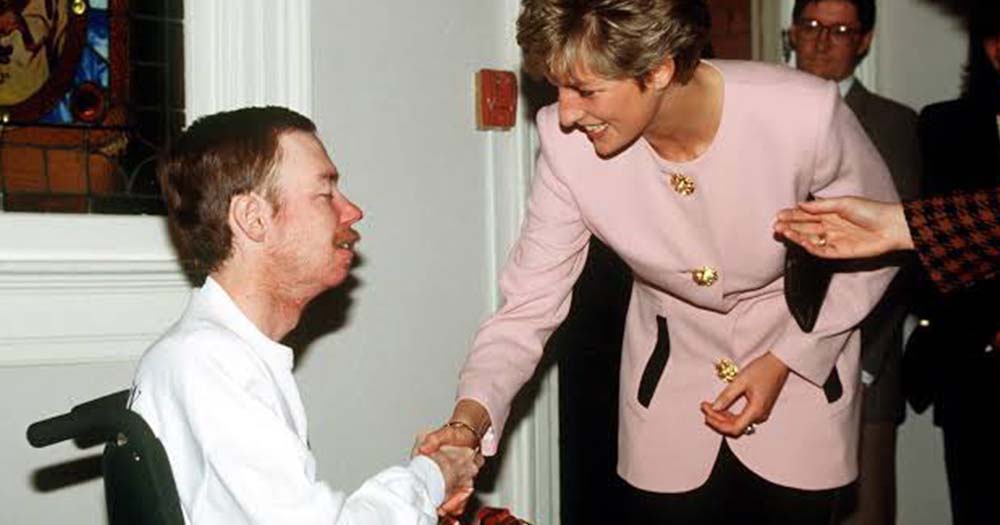On July 3, 1981, the New York Times published an article called ‘Rare cancer discovered in 41 homosexuals’ which would go down in history for directly contributing to HIV stigma around the world. This reporting led to HIV becoming synonymous with a “gay disease” in mainstream media, which would cause incalculable harm to the LGBTQ+ community.
The acronym AIDS, Acquired Immunodeficiency Syndrome, was established in the summer of 1982, but it was initially named Gay Related Immune Deficiency (GRID). Even though it became an international crisis impacting people with a range of sexualities, the illness was largely ignored by the general population. The lack of coverage and resources exacerbated the trauma for millions of HIV Positive people.
While the impact of the initial lack of support can not be overstated, several unforgettable acts by LGBTQ+ activists and allies saved lives and addressed HIV stigma both in Ireland and globally.
Gay Health Action Letter
The efforts by Ireland’s LGBTQ+ community during the early years of HIV in Ireland saved countless lives. Initially, with a lack of sex education and strict restrictions on the purchase of condoms, HIV cases rose drastically in Ireland, but the Gay Health Action (GHA) led HIV education efforts beginning in 1985. Its AIDS Information leaflet helped educate the public and dispel misinformation about HIV.
In 1986, the GHA wrote a letter to the Minster for Health stating, “the entire responsibility of public education and training on AIDS in Ireland has landed on our shoulders: to put it bluntly, we are doing your department’s jobs.” In 1987, the Irish government finally contributed to a public AIDS education campaign, and Dr Derek Freedman acknowledged that Ireland was “ill-equipped to deal with the AIDS epidemic”.
Princess Diana’s Activism
At the height of the AIDS epidemic in April 1987, Princess Diana opened the UK’s first specialist HIV/AIDS unit at London’s Middlesex Hospital to exclusively provide care for patients with HIV. She spent a lot of time in AIDS wards with the patients where she publicly demonstrated efforts to treat those suffering with compassion and respect.
She shook hands with patients without wearing gloves at the opening of the hospital. At that time, misinformation led some members of the public to believe that the disease could be spread with casual contact. Her small gestures of handshakes and hugs significantly changed attitudes about AIDS around the world.
https://twitter.com/galaxyfarrahway/status/1598273293718802432
Frare’s Photo
Finally, Frare’s photograph famously humanised the HIV patient experience and helped combat discrimination in the early 1990s.
The photo shows distraught family members gathering with their loved one before his death. The image helped fight HIV stigma and is remembered in history as “the picture that changed the face of AIDS”. The patient, David Kirby, was an activist who gave his permission for the photo to be shared as long as it wasn’t for the photographer’s personal profit, a request that Frare has always honoured.
While huge strides have been made regarding the destigmatisation of HIV, there is still work to be done. In honour of World AIDS Day 2022, HIV Ireland encouraged the population to take part in its GlowRED campaign which aims to help achieve Zero HIV stigma.
The powerful HIV documentary How To Tell A Secret also addresses a larger conversation about destigmatising HIV. The film is currently showing in Irish cinemas across the country. Actor, Robbie Lawlor said, “This movie is a great way to showcase the effect of that stigma. After watching, you understand our fears about coming out and through watching it, hopefully, you want to get involved in helping us push forward.”
© 2022 GCN (Gay Community News). All rights reserved.
Support GCN
GCN is a free, vital resource for Ireland’s LGBTQ+ community since 1988.
GCN is a trading name of National LGBT Federation CLG, a registered charity - Charity Number: 20034580.
GCN relies on the generous support of the community and allies to sustain the crucial work that we do. Producing GCN is costly, and, in an industry which has been hugely impacted by rising costs, we need your support to help sustain and grow this vital resource.
Supporting GCN for as little as €1.99 per month will help us continue our work as Ireland’s free, independent LGBTQ+ media.
